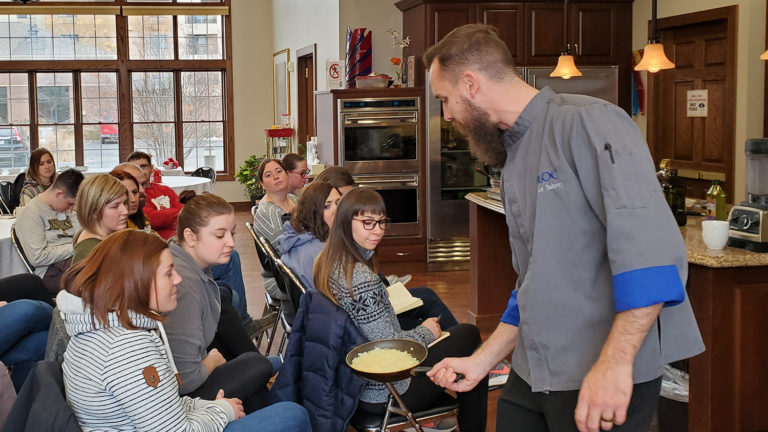
For more formal learning, lectures are offered a few times a month. Topics include cancer treatment, side-effects, emotional well-being, therapeutic expression, nutrition, pain management, finances, legal issues, caregiving, advocacy, and survivorship. Many of our lectures are part of the Frankly Speaking About Cancer Series. These include the most current information about cancer-related subjects presented by medical experts.
Cancer Transitions
All Cancer Transitions programs are 4-week long, community-based programs. The program covers the benefits of exercise, nutrition, emotional support, and medical management — core issues for cancer survivors. Participants meet each week to hear presentations, engage in group discussion, and directly address the emotional and social hurdles they face during the transition period following treatment.
People who wish to better manage the short- and long-term impacts of cancer, especially within the first 24 months after treatment, will gain valuable skills through this program. It is strongly recommended that treatment has been completed.
Questions? Contact program@gildasclubmadison.org
Upcoming Sessions
This edition of Cancer Transitions is designed to address the needs of adult cancer survivors. Topics include:
- Get Back to Wellness: Take Control of Your Survivorship
- Emotional Health
- Eating Well and Staying Active
- Medical Management Beyond Cancer: What You Need to Know
Learn more and register:
This edition of Cancer Transitions is designed specifically to address the needs of young adults (ages 18-45). From navigating “new normal”, to relationships, school/work, meaning making and medical followup – this program covers so much. There is also time to set goals and make positive changes.
Topics include:
- Taking Control in Survivorship
- Emotions & Relationships
- Survivorship in Action
- Medical Management in Survivorship
Learn more and register:
Caregivers have their own unique, yet often overlooked, needs in survivorship. Each week we’ll meet as a group to hear presentations, engage in discussion, and together we will address the emotional and social hurdles faced during this transitional time. We will discuss medical care, healthy lifestyle, emotional support, relationships, and practical needs.
This program is designed to help you improve your quality of life by focusing on lifestyle skills and habits related to:
- Re-focusing on You
- Health & Wellness
- Emotions & Relationships
- Looking into the Future
Learn more and register:
